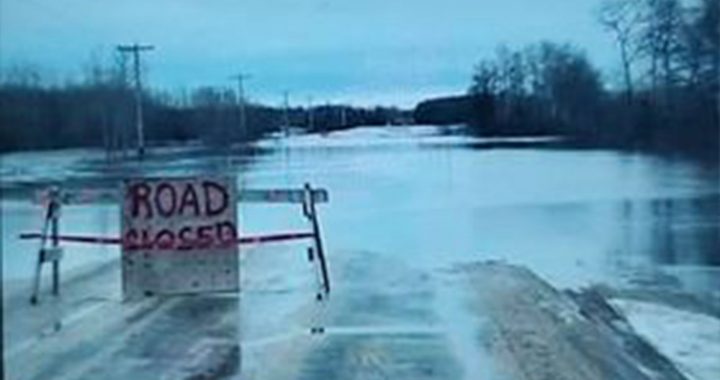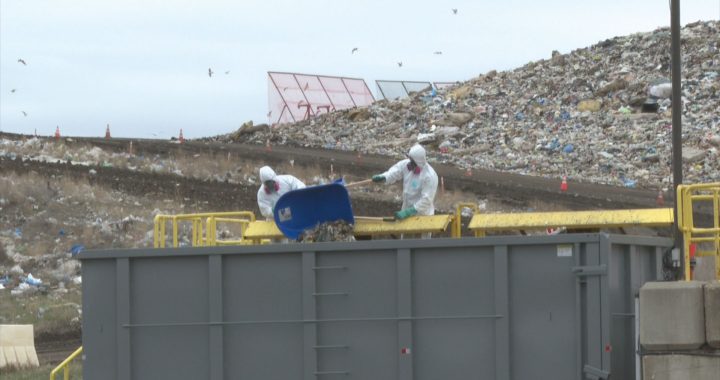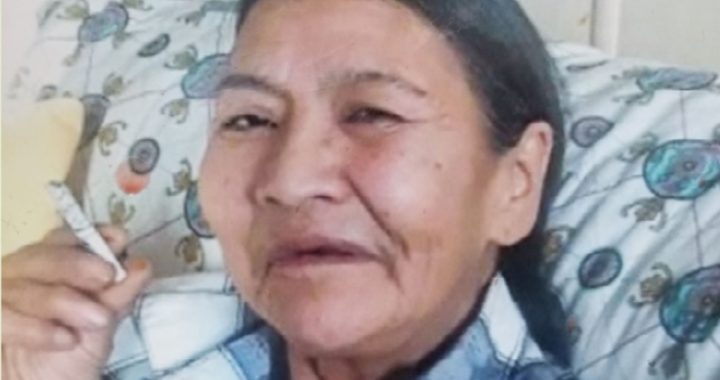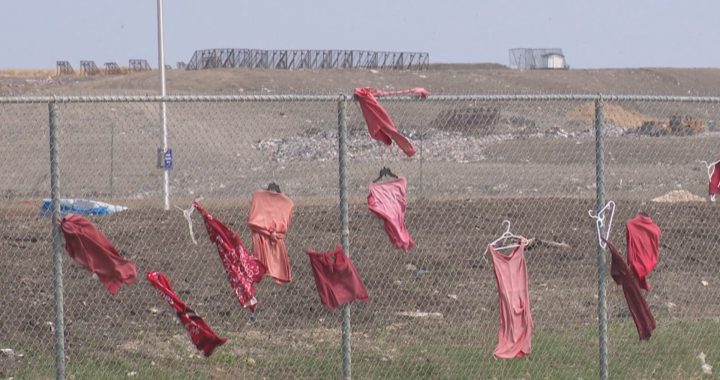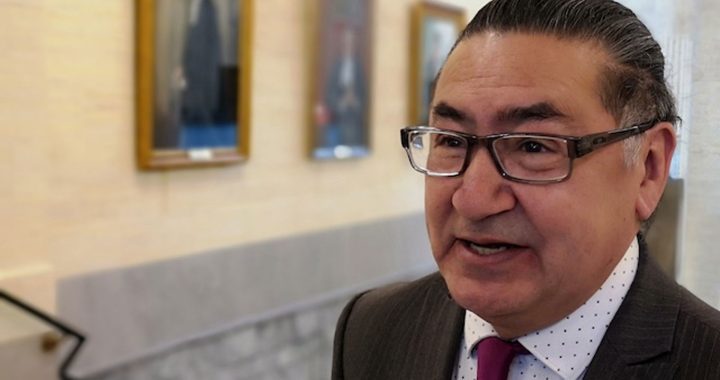‘This is all positive’ says chief in B.C. of salmon farm changes
The elected chief councillor of Kwikwasut’inuxw Haxwa’mis First Nation in the Broughton Archipelago says the province’s new policy on fish farms is a big step toward implementing the United Nations Declaration on the Rights of Indigenous Peoples (UNDRIP).
The elected chief councillor of Kwikwasut’inuxw Haxwa’mis First Nation in the Broughton Archipelago says the province’s new policy on fish farms is a big step toward implementing the United Nations Declaration on the Rights of Indigenous Peoples (UNDRIP).
“This is all positive,” said Bob Chamberlain who is also vice-president of the Union of B.C. Indian Chiefs.
“We are working very hard with this government because they’ve made the commitment to implement the declaration.”
On Wednesday, B.C. Agriculture Minister Lana Popham, announced that the rules for renewing salmon farm tenures in B.C. will change starting in four years.
“The challenges facing our wild salmon have been ignored for far too long,” said Popham.
“That’s why we are putting in place a new approach to provide clarity and outline our expectations moving forward for a sustainable industry that protects wild salmon, embraces reconciliation, and provides good jobs.”
Effective June 2022, the province will only grant tenures to fish farm companies that have agreements in place with the First Nation territories they propose to operate in, and who have satisfied Fisheries and Oceans Canada (DFO) that their operations will not impact wild salmon.
The year 2022 aligns with the renewal date for the majority of B.C.s federal fish licences.
“We will look to DFO to bring the best science to determining where and under what conditions open-pen fish farms can operate without threatening wild salmon and other species,” said Popham.
A court ruling in 2009 clarified that the federal government had jurisdiction over regulating the farms.
The minister’s announcement fell on the same day that 20 fish farm tenures in the Broughton Archipelago, located off Vancouver Island, expired.
A collective of First Nation communities in that area want the salmon farms removed.
They say the farms are operating without their consent and are a threat to wild salmon by spreading disease and sea lice.
“Wild salmon cannot wait four years,” said Hereditary Chief Ernest Alfred of ‘Namgis First Nation.
“We are very afraid that if something isn’t done quickly we’re going to lose what’s left of our already low wild salmon stocks.”
Alfred occupied Swanson Island fish farm, located near Alert Bay, for almost 300 days.
In May he was forced to leave by a court order.
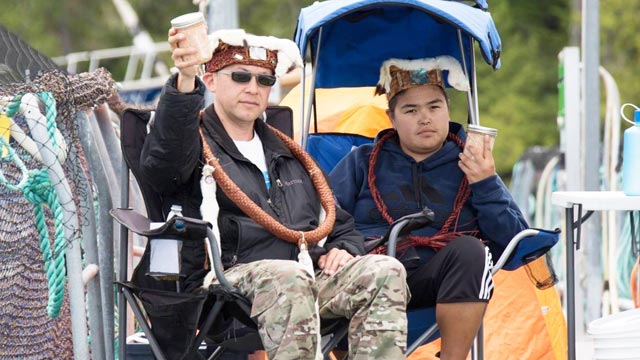
Alfred and other salmon protectors lived at the fish farm hoping that come June 20, the new NDP government would finally cancel the tenures.
“We do not yet have a concrete answer,” said Alfred.
“Although the announcement is a good step in the right direction, it doesn’t actually deal with the tenures in the Broughton Archipelago.”
The B.C. government announced that the farms in the Broughton area will remain outside the new framework while government-to-government discussions about the farms continue.
Those talks began in January 2018.
In the meantime, tenures in the Broughton Archipelago will be renewed on a month-to-month basis.
Provincial tenures for other fish farms that expire before 2022 will also be renewed month-to-month until the deadline.
After that, any fish farm wanting to renew an existing licence or apply for a new one must demonstrate that they have approval from First Nations.
“This means that what we’ve been doing and saying is having an effect,” said Alfred.
“I’m hopeful this could go in a good direction for our wild salmon and our people, but I’m not going to get excited yet.”
Chamberlain has been participating in the government-to-government discussions, and although he cannot give us details, he said he’s confident with the group’s progress.
“The Broughton is a set of work that has its own goals, even though it is intertwined with the broader policy announcement,” said Chamberlain.
“We are very close to finalizing the letter of understanding, which outlines the path forward, and then we can get on to looking at every tenure in the Broughton.”
But not every Nation in the Broughton area is pleased with the announcement.
The Dzawada’enuxw First Nation (DFN) rejects the government’s decision to keep the farms operating.
“We are very disappointed, but not surprised,” said Lindsey Mae Willie. “Month-to-month is just to say that they’re doing something, but they’re really not.”
“They are passing the buck. They might be elected out of government by 2022. There is no guarantee and we are not satisfied with that answer.”
The Dzawada’enuxw were once part of the government-to-government discussions, but walked away in May oncerned they would not deliver a positive result.
They filed a claim of Aboriginal title in B.C. Supreme Court on May 28.
And on June 19, the eve of the NDP’s anticipated announcement, the DFN filed an application for an injunction to challenge the renewal of the tenures.
“We should have jurisdiction to issue tenures, not the province,” said Willie
“It’s our land.”
Chief Willie Moon, DFN elected chief and traditional leader, said their legal fight is just beginning.
“We’ve been fighting fish farms in our territory for over two decades and that battle does not end with this announcement.”
Not all Indigenous communities are against open-net salmon farms.
Marine Harvest, the world’s largest producer of farmed Atlantic salmon, has 15 formal agreements with B.C. First Nations.
Some agreements go as far back as 20 years.
“Marine Harvest has a 20 year track record of building partnerships with First Nations on B.C.’s coast and will continue to work respectfully and in a positive manner,” said Vincent Erenst, Marine Harvest Canada Managing Director in a statement.
Farm raised salmon generates over $1.5 billion towards the B.C. economy and over 6,600 jobs.
About 20 per cent of the people working directly for salmon farm companies are First Nations.
And for now, all those jobs are safe.




